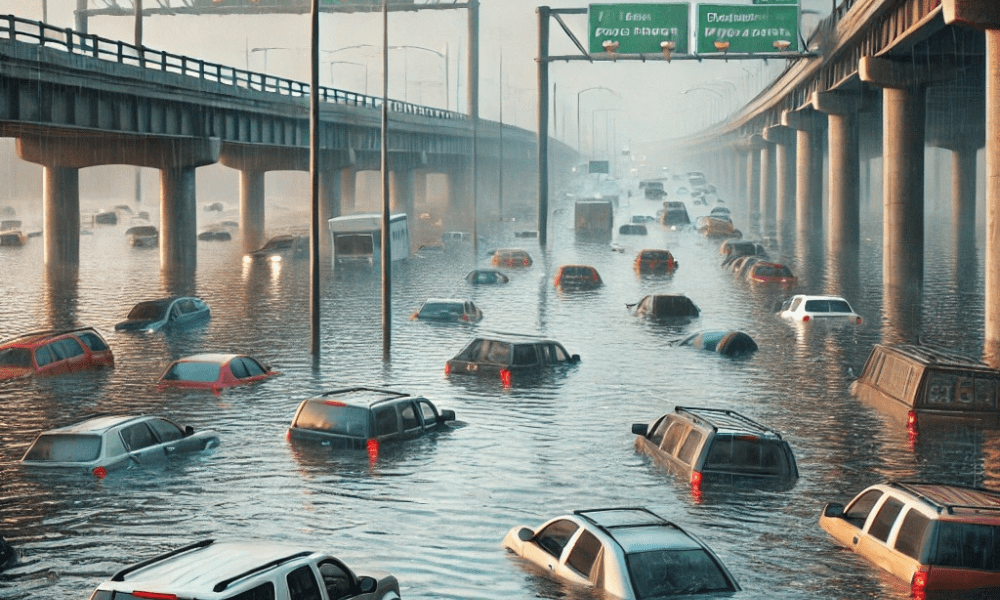Record-breaking weather losses prompt IBC to demand government action

Record-breaking weather losses prompt IBC to demand government action | Insurance Business Canada
Catastrophe & Flood
Record-breaking weather losses prompt IBC to demand government action
Summer of 2024 has shattered loss records for the country
Catastrophe & Flood
By
Kenneth Araullo
The Insurance Bureau of Canada (IBC) is urging federal and provincial governments to collaborate on reducing disaster risk after four catastrophic weather events in the summer of 2024 resulted in over CA$7 billion in insured losses, according to estimates from Catastrophe Indices and Quantification Inc. (CatIQ).
The summer of 2024 has become the most destructive in Canadian history for insured losses linked to severe weather. According to the IBC, the losses in July and August alone surpassed previous records, pushing the year-to-date total to CA$7.7 billion, marking a significant rise in claims.
The summer of 2024 has topped Canada’s previous five costliest years for insured severe weather losses. The events contributing to this summer’s losses include floods in Toronto and Southern Ontario, a wildfire in Jasper, Alberta, a hailstorm in Calgary, and floods in Quebec.
These disasters pushed total insured losses to CA$7.1 billion, far surpassing the 2016 Fort McMurray wildfire, which caused CA$6.2 billion in losses.
IBC reported that the summer of 2024 alone has seen about 228,000 insurance claims, a 406% increase compared to the 20-year average.
“This has been a devastating summer for hundreds of thousands of Canadians. Relentless storms, fires, and floods have resulted in approximately 228,000 insurance claims,” said Celyeste Power, president and CEO of IBC.
Power also noted that while the insurance industry is committed to working with governments to address climate change and build more resilient communities, Canada remains underprepared for escalating severe weather events.
IBC has been calling for government action on climate adaptation for nearly a decade, as the financial impact of climate-related disasters has been growing steadily. The organisation is urging a national, whole-of-society approach to reducing disaster risk, arguing that debates over emission reductions have distracted from efforts to protect communities from extreme weather.
Craig Stewart, vice-president, climate change and federal issues at IBC, pointed out that insurers are now paying out more in claims from a single event than the CA$1.9 billion the federal government has invested in climate adaptation over the last decade.
Stewart emphasised the need for collaboration between governments and the private sector to better protect Canadians and their communities. He noted that municipalities continue to build homes in areas vulnerable to flooding and wildfires, complicating efforts to keep insurance accessible and affordable.
In June 2023, the federal government introduced the National Adaptation Strategy, but progress toward its targets has been limited.
“As costs from climate-fuelled disasters mount, action from governments to reduce risk is stalled,” Stewart said.
He added that governments need to support resilient building practices and invest in disaster mitigation measures such as flood defences, stormwater infrastructure upgrades, and programmes to fire- and flood-proof new and existing homes.
Provisions aimed at addressing the rising cost of climate-related disasters, such as resilient infrastructure and stricter building regulations, are seen as critical to ensuring that insurance remains available to homeowners in the future.
The IBC continues to push for these reforms as severe weather events increase in frequency and intensity across Canada.
What are your thoughts on this story? Please feel free to share your comments below.
Related Stories
Keep up with the latest news and events
Join our mailing list, it’s free!






